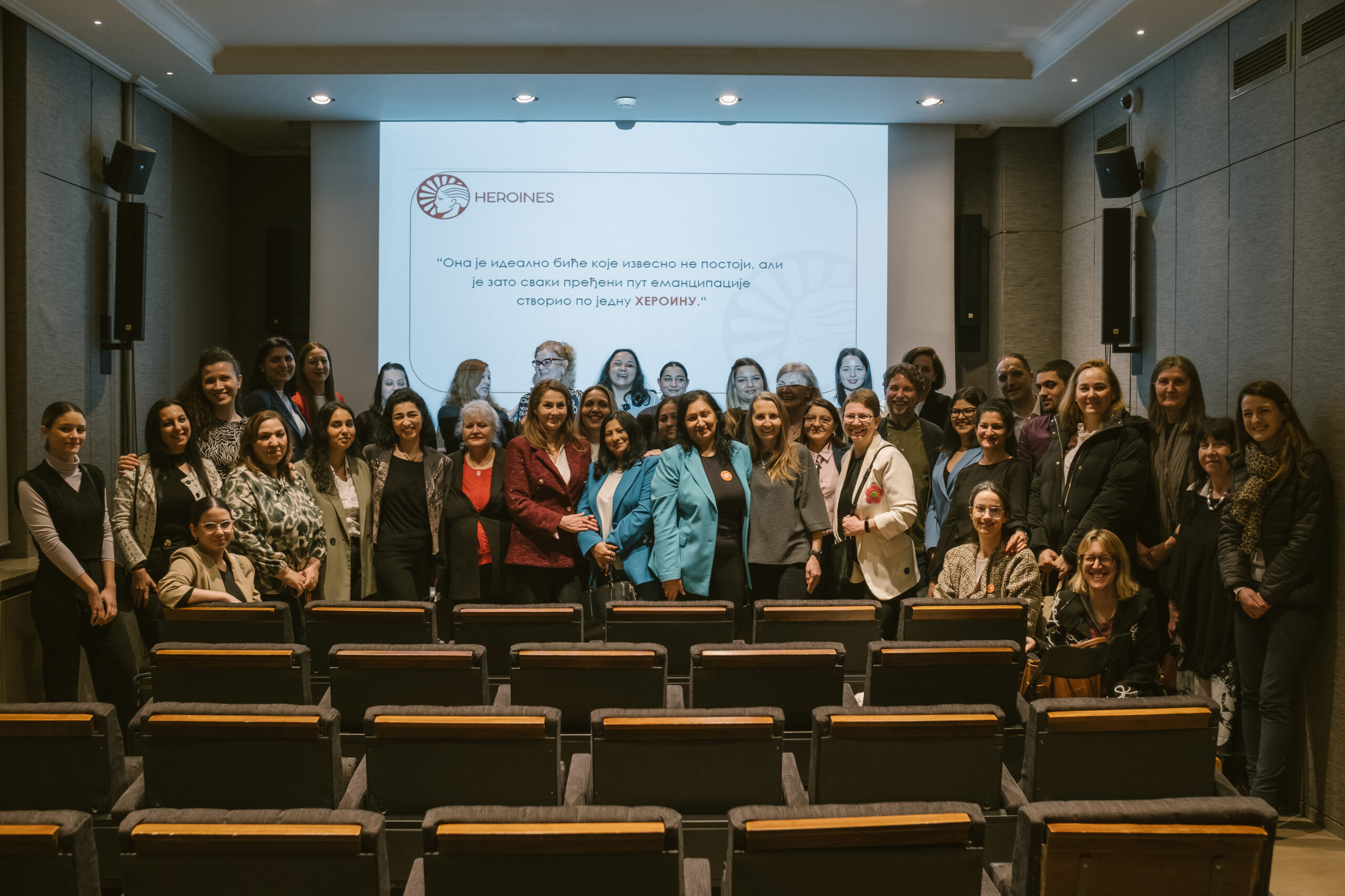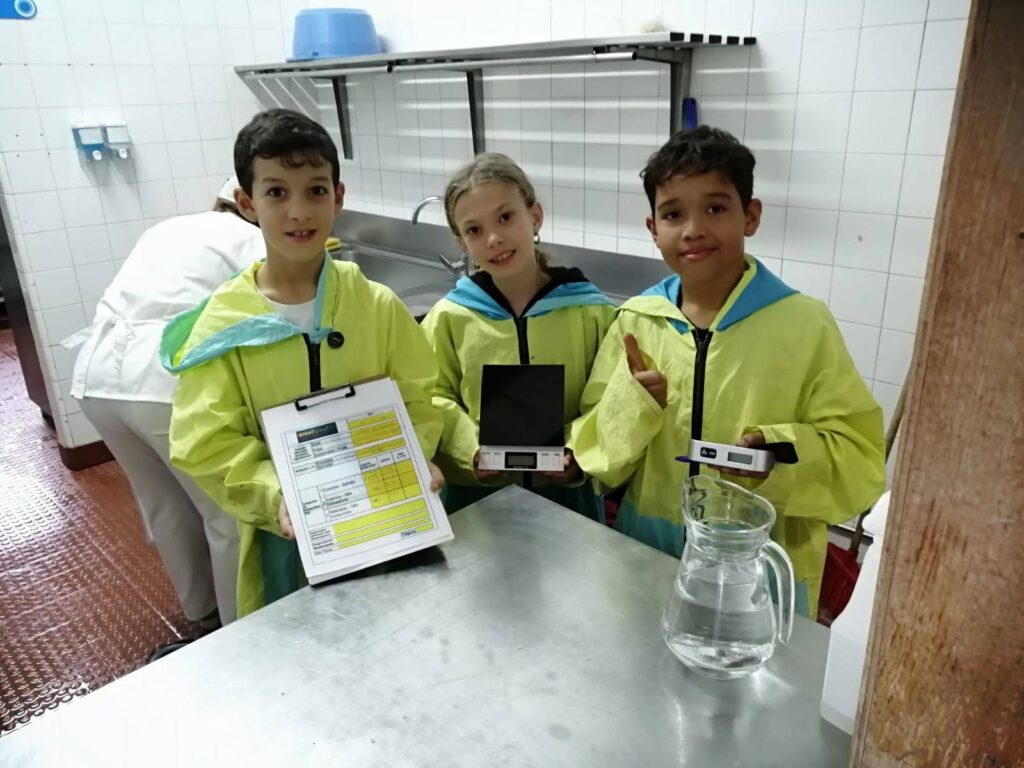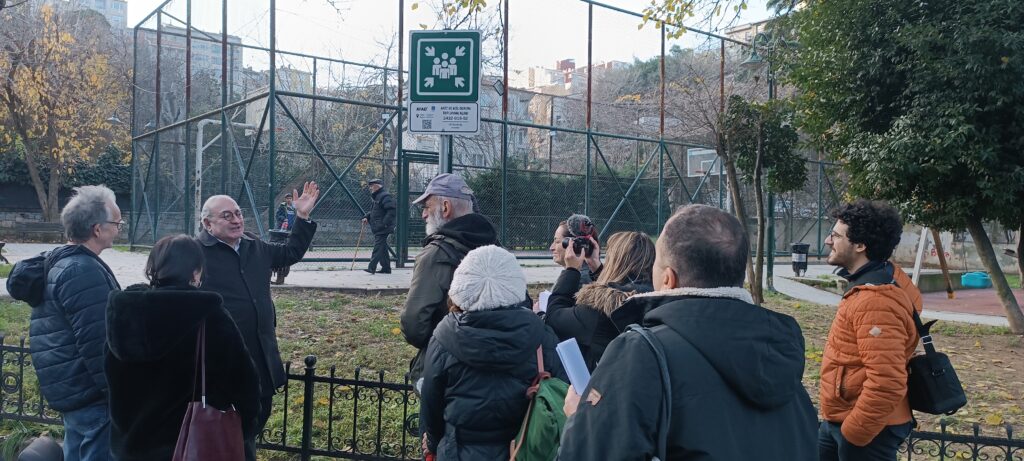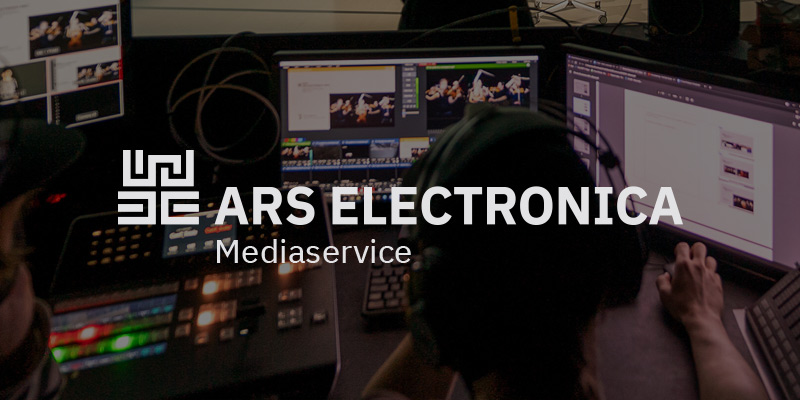- Online-Stream/June 19: Announcement of the Winners / European Union
- Press release as PDF
- Photos via Flickr
- Overview: Winners & Honorary Mentions 2025
- European Union Prize for Citizen Science & the Jury
- Interview with Grand Prize Winners
(Linz/Brussels, June 20, 2025) With 409 submissions from 58 countries, the European Union Prize for Citizen Science attracted significant international interest in its third edition. The award, whose winners collect a total of €100,000 in prize money, sought initiatives that bring researchers and citizens into constructive dialogue and pursue innovative research approaches through joint engagement. The competition was once again organized and run by Ars Electronica in Linz. These are the 2025 award winners:
The European Union Prize for Citizen Science—Grand Prize, along with €60,000 in prize money, is awarded to the initiative HEROINES: Heritage of Emancipation—Empowering Roma Women through Building Networks of Solidarity. At its core is a participatory research approach that highlights the perspectives and lived realities of women from the Roma community in Serbia and documents their cultural heritage. The women are involved in all phases of the project.
The Digital Communities Award, with €20,000 in prize money, goes to the Turkish project Antiquake Risk Hunter Community, which addresses earthquake risks and disaster preparedness in Kuzguncuk (Istanbul). Residents, schools, authorities, and experts all collaborate on an interactive digital map to document critical infrastructure, hazards, and safe areas in the neighborhood. The goal is to raise awareness and prepare Kuzguncuk for future earthquakes.
The Diversity & Collaboration Award, with €20,000 in prize money, goes to the Portuguese project MoFWaste—The Museum of Food Waste. More than five hundred students aged ten to fifteen, along with their teachers and kitchen staff, critically engaged with the issue of food waste in six school canteens in the coastal cities of Esposende and Viana do Castelo. Together, they developed monitoring strategies and effective countermeasures to sustainably reduce food waste.
In addition to the three prize categories, the jury—Sarah West (UK), Katja Mayer (AT), Dusan Misevic (RS/FR), Marleen Stikker (NL), and Josep Perelló (ES)—also singled out twenty-seven projects for Honorary Mentions.
Exhibition at the Ars Electronica Festival 2025
The award-winning initiatives will be presented at the Ars Electronica Festival, which is taking place at the POSTCITY in Linz from September 3 to 7, 2025. The official award ceremony will be held on Thursday, September 4, 2025, at the Design Center Linz as part of the Prix Ars Electronica Award Ceremony.
International Partners
Ars Electronica organizes the European Union Prize for Citizen Science as part of the IMPETUS project. IMPETUS stands for “Innovative Methods for Providing European citizens with Trusted and Useful Science.” The initative honors, presents and supports outstanding projects whose social and political impact advances the further development of a pluralistic, inclusive and sustainable society in Europe. Other partners include King’s College London (UK), the European Science Engagement Association (AT), Zabala Innovation (ES), T6 Ecosystems (IT), Science for Change (ES), and Nesta (UK).
Ars Electronica awards the European Union Prize for Citizen Science on behalf of the European Commission as part of
the IMPETUS project. IMPETUS is funded by the European Union in the context of the research and innovation program Horizon WIDERA 2021-ERA-01 / Grant Agreement No. 101058677.
European Union Prize for Citizen Science
Grand Prize
Awarded for outstanding achievements in the advancement of knowledge through the empowerment of civil society and citizens in the development of the future.
HEROINES: Heritage of Emancipation
Empowering Roma Women through Building Networks of Solidarity
Ivan Đorđević (RS), Slavica Vasić Mitrović (RS), Lada Stevanović (RS), Bojana Bogdanović (RS), Miloš Rašić (RS), Milena Jokanović (RS), Marija Đorđević (RS), Svetlana Ilić (RS), Svetlana Marinković (RS)
“The jury members were impressed by the inclusion of Roma women at all stages of the process and the deep partnerships with Roma community-based organizations, which have decades of experience in female Roma activism. […] The community mapping methodology developed in this project represents an innovative contribution to the citizen science landscape. While its core principles could inspire similar efforts elsewhere, it is not easy to replicate without the long-term commitment to building relationships and establishing trust within communities seen here. This makes the project a role model—not simply for the method itself, but for the process of cocreation it embodies. The approach is particularly impactful in contexts where individuals are often socially or geographically isolated and where opportunities for collective knowledge production are limited.“
Excerpt from the jury statement
HEROINES: Heritage of Emancipation is dedicated to advancing the emancipation of Roma women in Serbia by promoting local knowledge, strengthening community agency, and preserving intangible cultural heritage. The project applies “community mapping”—a participatory, bottom-up research method that empowers communities to identify and document their resources, assets, and challenges. Roma women are actively involved in all phases of the project, from research to representation. The creation of agency and visibility for this community makes HEROINES a truly outstanding citizen science project.
This project goes beyond data collection by using the information gathered to create a publication and a mobile exhibition. This offers a platform for Roma women to showcase their strength, resilience, and achievements through art and stories that are often excluded from the public discourse.
This approach fosters an empowering, self-representative narrative and the community empowerment model developed in the context of HEROINES helps decision-makers and broader society to better understand the issues faced by Roma women and the necessity for change.
Credits
We would like to express our sincere gratitude to the Centre for the Promotion of Science (CPN), Republic of Serbia, which has recognized the potential of the HEROINES project and supported it financially. Also, we are deeply grateful to all our associates and participants from the citizen side of this project, to many amazing women from the Roma Women’s Network of Serbia, in particular from the Roma Women’s Center BIBIJA, the Citizens’ Association Ternipe from Pirot, and the Roma center for women and children, Successful Women from Kostolac, who took part in almost all stages of this project.
European Union Prize for Citizen Science
Digital Communities Award
Awarded for excellence in fostering an open and inclusive civil society fit for the digital age by empowering communities to critically engage with digital technologies.
Antiquake Risk Hunter Community
Yelda Ademoğlu Gülkılık (TR/XK), Vincent Bouvard (TR/FR), Umut Koca (TR), Isin Malhas (TR), Uluc Ali Demir (TR)
“Climate change is amplifying weather-related disasters worldwide and 19% of Europe’s population is exposed to multiple natural hazards according to the European Commission’s Joint Research Center.[…] The jury highlighted the wide range of collaborators involved—residents, schools, municipal authorities, and disaster management professionals—that allowed Antiquake to foster a collaborative, bottom-up approach to risk assessment and community resilience throughout a digital space. Youth engagement played a central role, with students designing accessible emergency information materials and participating in drills. The project’s strong emphasis on capacity building, community engagement, and open data is commendable and offers a valuable model for replication in other contexts and in relation to other natural hazards. Collaborative digital technologies are central to the Antiquake project and demonstrate its excellence in fostering communities that can actively participate in Europe’s digital transformation.“
Excerpt from the jury statement
Istanbul is known as an area with high earthquake risk—as recently as April 2025, a severe earthquake with a magnitude of 6.2 occurred there. Starting in the local neighborhood of Kuzguncuk, the Antiquake Risk Hunter Community project engages residents in disaster risk reduction through citizen science. It aims to raise awareness of seismic hazards and strengthen neighborhood resilience by empowering citizens to contribute to identifying and reducing local risks.
More than 150 participants systematically observed their surroundings to document hazards, safe areas, and critical infrastructure, uploading the data to OpenStreetMap, a free and collaborative mapping platform powered by volunteers worldwide. These contributions by the digital community formed the basis for a printed and digital Disaster Risk and Safety Map, combining citizen insights with official resources such as the Istanbul Disaster Risk Reduction Plan. The Antiquake community also held meetings with public institutions to promote community-based disaster planning.
By bringing together inclusive participation, digital tools, and community-generated data, the Antiquake Risk Hunter Community project proves that disaster resilience is not solely an institutional responsibility: it thrives through shared knowledge, civic creativity, and neighborhood-level action.
Credits
The Antiquake Risk Hunter Community project was supported by the IMPETUS Accelerator Program under Horizon Europe.
We thank all volunteers, institutions, and collaborators—notably Prof. Dr. Binnur Öktem Ünsal (workshop theme), Dr. Evin Aydın Yöntem (psychosocial readiness research), Dr. Can Ünen (HOT Task leadership and OSM Turkey coordi-nation), OSM Turkey Community (HOT mapping), Orkut Murat Yılmaz (technical advisory and mapathon coordination), Ezgi Tok (data processing and mapathon), MBA Schools Sustainable Disaster Awareness Club (content and storytell-ing), Doruk Başoğlu (thesis on risk perception in Kuzguncuk), Sinan Kurmuş (advisory support), ISKI, Üsküdar Munici-pality and Disaster Affairs Directorate (institutional support), Turkish Design Foundation (venue and networking), ISKI Kuzguncuk Culture House (venue), Üsküdar Atölye (venue), Spatial Informatics Initiative Association (technical col-laboration), and all the local artists and NGOs who supported us.
European Union Prize for Citizen Science
Diversity & Collaboration Award
Awarded for excellence in grassroots approaches, explorative collaboration, cultural and gender diversity, community participation, stakeholder engagement, and social inclusivity.
MoFWaste—The Museum of Food Waste
Because food waste should be in the past.
Rio Neiva–Environmental NGO (PT), António Rodrigues Sampaio School Group (PT), António Correia de Oliveira School Group (PT), Henrique Medina Secondary School (PT), Monte da Ola School Group (PT), ATAHCA–Association for the Development of Terras Altas do Homem, Cávado e Ave (PT), Municipality of Esposende (PT), Municipality of Viana do Castelo (PT)
“The Museum of Food Waste draws attention to the urgent need to make food waste a thing of the past—especially in light of the growing importance of global food security. Led by Associação Rio Neiva, which has been active in environmental education since 1989, and strongly supported by local schools, the project shows high potential for initiating networked action. The project serves as an advocacy tool to influence school boards and local policy. […] The jury decision is based on the project’s commitment to participant ownership. It offers a replicable, inspiring model for addressing food security and responsible consumption across regions and borders. Its results and methods deserve wider visibility—including publication in academic journals—ideally in collaboration with scientists to further strengthen and expand future project campaigns.“
Excerpt from the jury statement
The Museum of Food Waste is a citizen science project that monitored food waste in six school canteens in Esposende and Viana do Castelo, Portugal. More than five hundred students aged ten to fifteen participated in this project. Together with their teachers, they carried out forty days of food waste monitoring. To support the process, the participants codeveloped a tool kit that includes a detailed protocol and a data collection sheet. Over the course of the monitoring period, a total of 6.24 tons of food waste were recorded across all canteens, including plate leftovers, kitchen food surplus, and inedible food waste. This was followed by the joint development of food waste reduction strategies, with canteen staff playing a key role in identifying good practices and contributing through waste separation and participation in two hands-on training workshops.
By not only involving the students and teachers but also building on the canteen staff’s expertise, the project developed a truly outstanding model of collaboration.
The Museum of Food Waste advocates for the implementation of food waste reduction strategies and the establishment of regular monitoring and evaluation practices in schools. The results were presented in a traveling visual exhibition that toured the participating schools and featured student-led guided tours.
Credits
Project support: IMPETUS Project—Sustaining Grant
Honorary Mentions
European Union Prize for Citizen Science 2025
Achieving a New European Energy Awareness
Ana Belén Cristóbal López (ES), Luis Narvarte (ES), Luis Miguel Carrasco (ES), Martin Brocklehurst (GB), Marta Victoria (GB), Zhe Zhang (GB), Marko Topic (SI), Matevz Bokalic (SI), Emma Jayne Williams (GB), Luis Fialho (PT), Afonso Cavaco (PT), Joana Mouquinho (PT), Megan Blyth (GB), Lars Lorenz (DE), Alex Gerber (DE), Manuel Castillo (ES), Óscar Anchorenea (ES)
Acting4DHH: Citizen social science for the benefit of the Deaf community
Katerina Zourou (GR), Stefania Oikonomou (GR)
Baltic Sea 3D Wrecksite Ontology
Markku Luoto (FI), Maritime Archaeological Society of Finland (FI)
Care PartIES
Marie-Therese Schultes (AT), Dina Hediger (CH), Deborah Scharfy (DE), Irene Rilko (CH), Julia Bänziger (CH)
Deep Time—Collective Intelligence for Nature Recovery
Brendon Wilkins (GB), Jonski Millar (IE), Anna van Nostrand (GB), Maiya Pina-Dacier (GB), Lisa Westcott Wilkins (GB)
Dingle Peninsula Living Lab
Deirdre de Bhailís (IE), Dinny Galvin (IE), Tommy Reidy (IE), Brendan Tuohy (IE), Muireann Kelliher (IE), Clare Watson (IE), Connor McGookin (IE), Evan Boyle (IE), Aoife Deane (IE), Alexandra Revez (PT), Julia Blanke (DE), Archishman Bose (IN), Brian Ó Gallachóir (IE), Jerry Murphy (IE)
Hollandse Luchten
Waag Futurelab (NL), Provincie Noord-Holland (NL), RIVM (NL), TNO (NL), GGD Amsterdam (NL), AethiQs (NL)
INPN Espèces
PatriNat (OFB, MNHN, CNRS, IRD)
Local and international citizen scientists for biodiversity mapping of the endangered Komarnica Canyon in Montenegro
Iva Njunjić (RS), Menno Schilthuizen (NL), Jelena Popovic (ME), Taxon Foundation citizen science team (NL), Montenegrin Ecologists Society (ME), Save Komarnica (ME)
Maldita.es contra la desinformación
Maldita.es Foundation (ES)
Mapping for Recreation with Temporarily Displaced Children (Map4Rec)
Ekaterina Egorova (RU), Kateryna Miller (UA)
MatheConnect—Cross-curricular topics for the mathematics classroom, that matter to 21st century learners
Daniela Steflitsch (AT), Sandra Friederike Wieser (AT), Katrin Kanatschnig (AT), Students of the BG|BRG St. Martin Villach (AT)
Mindful journeys to a shared past
Maria de Lurdes Rosa (PT), VINCULUM PROJECT TEAM (PT)
Monitoring Everchanging Environment in Katla UNESCO Global Geopark, Iceland
Jóhannes Marteinn Jóhannesson (IS), Ann Irene Peters (US)
Nachtlichter (Night lights)
Nachtlichter collaboration (DE)
Nürnberg forscht
Martin Dr. Bauer-Stiasny (DE),Derya Yıldırım (DE, Cornelia Yılmaz (DE), Jelena Torbica (DE), Thomas Kießlich (DE)
Zeynep Deprem (DE), Nilgün Cevik (DE)
Observadores del Mar
Observadores del Mar, CSIC (ES)
Oeiras Experimenta
Maria Leão (PT), Elisabete Brigadeiro (PT), Rubén Vicente (ES), Isabel Abreu (PT), Carlota Vaz Patto (PT), Ana Fortunato (PT), Omar Vergara (ES), João Reis (PT), Inês Sardinha (PT), Carmen Santos (PT), Susana Leitão (PT), Maria Mina (PT), Margarida Oliveira (PT), Ana Sanchez (PT), Maria José Amândio (PT), Alexandra Vasconcelos (PT), Sílvia Tacanho (PT), Renata Ramalho (PT), Luís Morgado (PT), Joel Arruda (PT), Ana Silva (PT), Ivana Martins (PT), Eleonora Tulumello (IT), Marta Santos (PT), Selma Rodrigues (PT), Sara Almeida (PT), Luís Macedo (PT), Catarina Pereira (PT), Raquel Gomes (PT), Giovanna Dellarole (PT), Celeste Reis (PT), Ana Beja (PT), João Juliano (BR), Djaiba Balde (GW), Fatu Ture (GW), Maria João Aguiar (PT), Romana Yáñez (CV), António Vicente (PT), Miguel Prado António (PT), Margarida Prado (PT), Municipality of Oeiras (PT), ITQB NOVA (PT), Oeiras Experimenta Team (PT)
Open Food Facts
Stéphane Gigandet (FR), Pierre Slamich (FR)
PAIR
Ariadna Laguna (ES), Silvia Enriquez (ES), Sara Mas (ES), Alba Jané (ES), Laura Teixidor (ES), Vall d’Hebron Insitute of Research (ES)
PECan—Partners of Experience in Cancer
Panagiotis Bamidis (GR), Despoina Mantziari (GR), Anastasia Gkartzoni (GR), Maria Nikolaidou (GR), Antonis Billis (GR), Nikolaos Kyriakidis (GR), George Kapetanakis (GR), Katerina Nikitara (GR), Maria Nomikou (GR), AUTH Lab of Medical Physics & Digital Innovation / Thessaloniki Active and Healthy Ageing Living Lab (Thess-AHALL) (GR), Hellenic Cancer Fed-eration (ELLOK) (GR)
RESTORATION (natuRE-based SoluTion flOod Risk mitigATION)
Payam Sajadi (IE), Di Nguyen (VN), Daniel Walsh (IE), Francesco Pilla (IE), Gerald Mills (IE), Salman Khan (IE), Jeremy Auerbach (IE), Mehdi Gholamnia (IE), Charlotte Deferrars (FR), Gabriel Oduri (KE), Nasim Eslamirad (IR)
SERVET: Citizen Science in the Stratosphere
Enrique Torres Moreno (ES), Natalia Carmen Ayuso Escuer (ES), Laude Guardia (ES), Francisco Sanz (ES), Servet (ES)
Sustainable and Healthy InFrastructure by reducing stress during active Travel (SHIFT)
Anna Molter (DE), Brian Caulfield (IE), Ciarán Ferrie (IE), Nakisa Soltani (IR), Peter Kearney (IE), Sonia Soubam (IN), Uni-versity College Dublin (IE)
The Science of Sourdough – How Citizens are Helping Shape the Future of Plant-Based Fermented Foods in the HealthFerm Project
Christophe Courtin (BE), Nicholas Bokulich (US), HealthFerm Consortium (INT)
‘Watch out! Don’t step on me!’
Olatz Ortega Vidales (ES), Eider Bilbao (ES), Oihane Diaz de Cerio (ES), Belen Gonzalez Gaya (ES), Aitor Laza Martinez (ES), Ainara Achurra (ES), Zuriñe Baña Garcia (ES), Harkaitz Eguiraun Martinez (ES), Pamela Ruiz Rodriguez (ES), Mireia Irazola Duñabeitia (ES), Miren Bego Urrutia (ES)
XENOPIA
Alma Futura (IT)
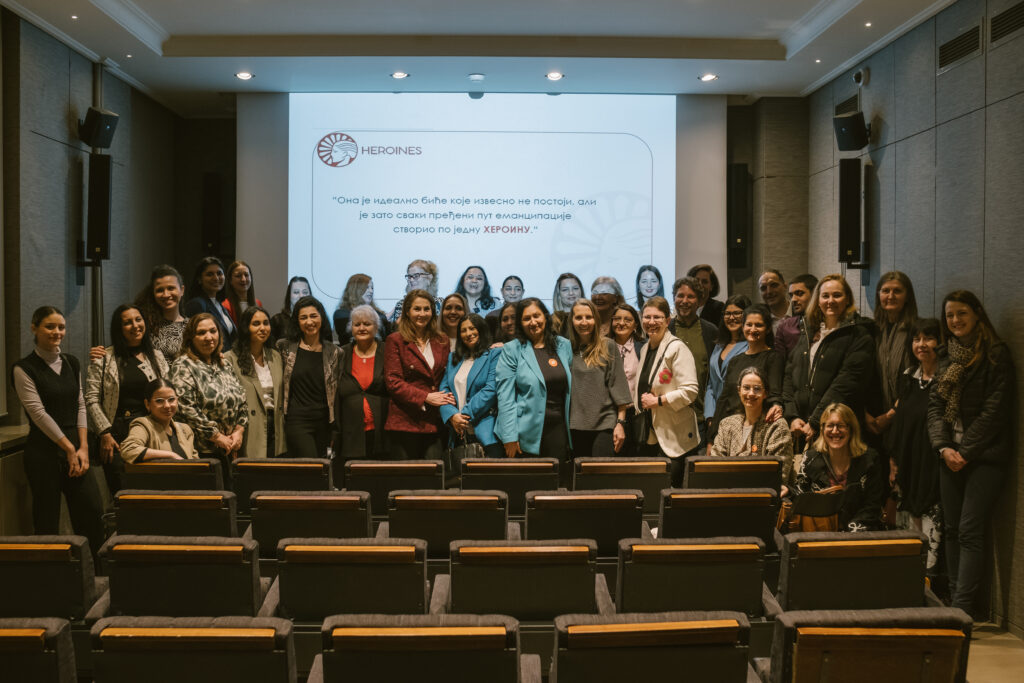
HEROINES: Heritage of Emancipation – Empowering Roma Women through Building Networks of Solidarity / Ivan Đorđević (RS), Slavica Vasić Mitrović (RS), Lada Stevanović (RS), Bojana Bogdanović (RS), Miloš Rašić (RS), Milena Jokanović (RS), Marija Đorđević (RS), Svetlana Ilić (RS), Svetlana Marinković (RS)
Photo: ISO DUO
